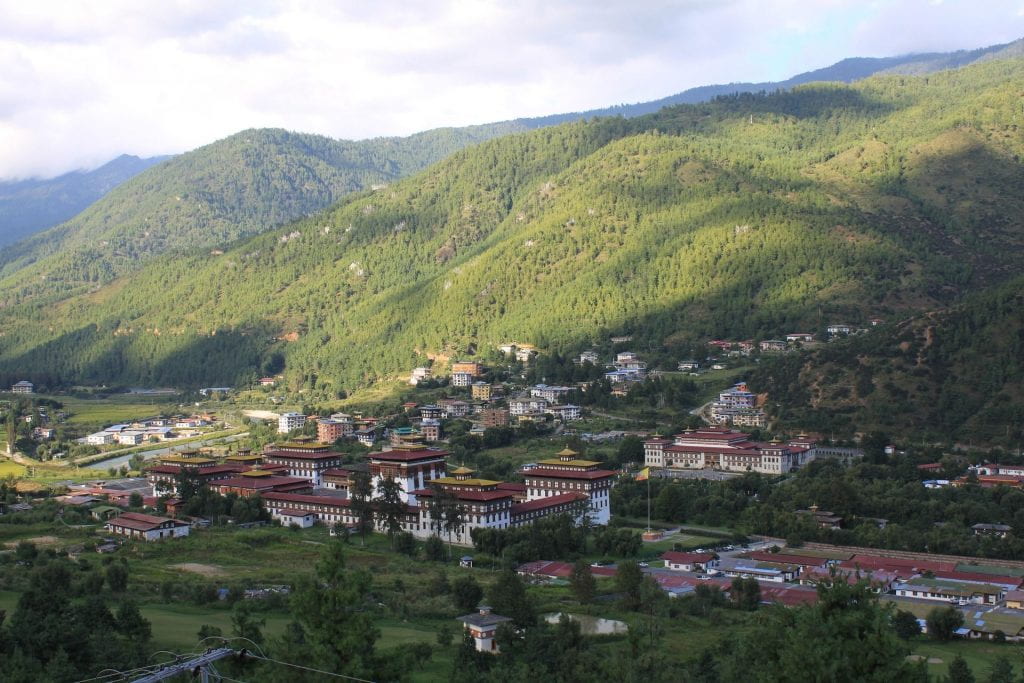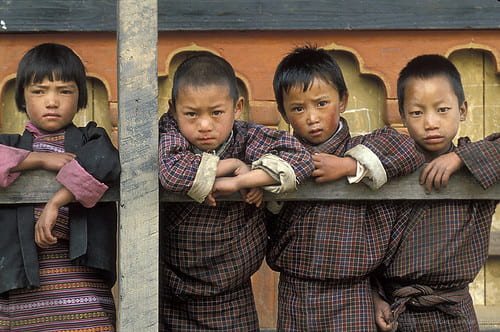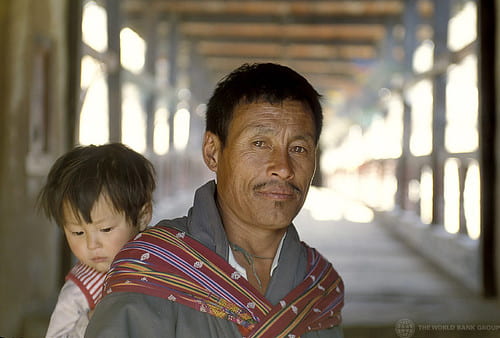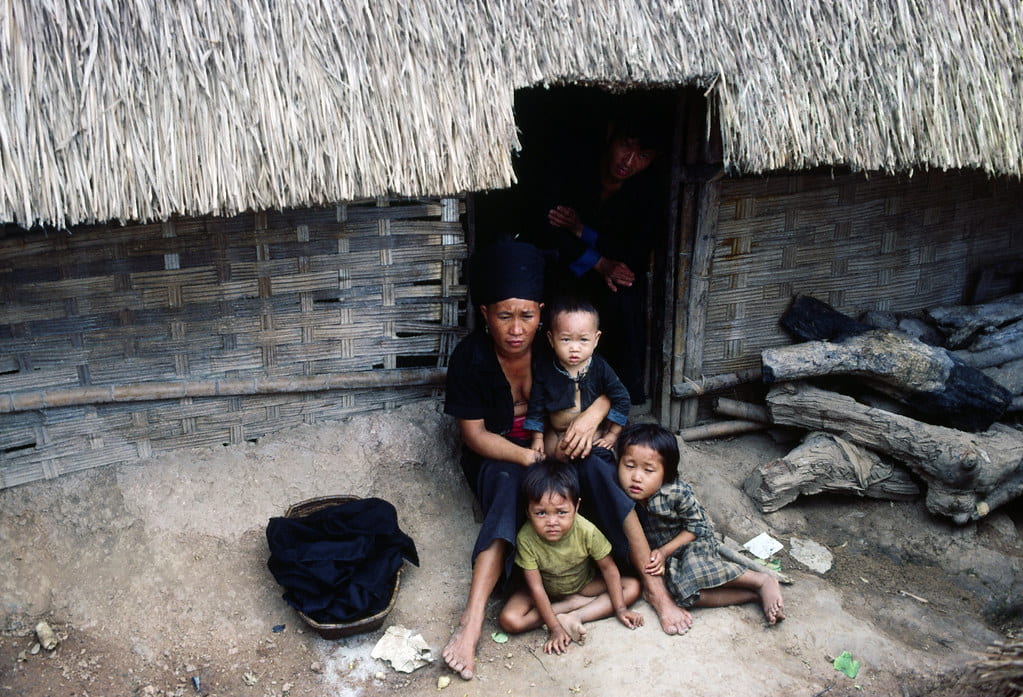
Real Life Shangri-La
Bhutan is often referred to as an idyllic Himalayan nation, a land of peace and prosperity, happiness, and beauty. After visiting Bhutan in 2017, I was even more fascinated, and truly began to understand why the small, neutral country has been dubbed a “real-life Shangri-La”. It is the only nation in the world to measure annual success by Gross National Happiness, rather than Gross Domestic Product. It is also the only country to have a carbon-negative footprint, with extraordinary levels of hydropower and renewable energy production and a zero-tolerance policy for industrial development. Bhutan is rapidly decreasing poverty rates and increasing the middle-class population. Government programs have made education and trade school accessible to most citizens who desire it. Bhutan has managed to remain neutral for hundreds of years with a minimal military presence despite being nestled between two conflicting superpowers, India and China. Citizens of Bhutan enjoy the state’s extensive social welfare programs and are enamored with the royal family that abdicated power to allow a peaceful transition to a democratic system.
In short, the nation seems like a true paradise, where culture and tradition are preserved with love and care, where nature is respected and upheld, and where one can pursue life to the fullest in a land of prosperity and opportunity. When I had the opportunity to travel through Bhutan, I was stunned by the gorgeous landscape, nation, and culture. I was welcomed with clearer air than I thought possible, a colorful landscape filled with trees and prayer flags, and adorable buildings constructed in traditional Bhutanese fashion. The people were so happy, and talked passionately about their country, royal family, and culture. There is a strong sense of nationalistic pride, and from everything Bhutan boasts, it seemed to be entirely deserved. Our guide taught us about local customs, Bhutanese Buddhism, traditional dress and building style, and masterfully escorted us through the most beautiful aspects of Bhutan and its culture.
It was only after leaving that I learned of human rights abuses Bhutan so carefully hides from tourists. Our state-sanctioned tour guide was an instrument in how this flawless reputation has been skillfully crafted, and the execution was so perfect that nothing felt staged while I was there. I enjoyed the country within an intricate veil of ignorance, unaware of the atrocities that no one is allowed to see.

Violations Exposed
Bhutan may appear to be a nation without error, but the country has perpetrated major human rights violations since the 1980s. For four decades, the United Nations, Freedom House and Human Rights Watch have consistently criticized and exposed Bhutan’s human rights violations. The nation is limited by strict libel laws and a culture that is unwilling to speak negatively on the king or his policies. While free speech is protected under Bhutan’s constitution, it is rarely practiced and this self-censorship is coupled with a flawed judicial system that harshly punishes those found to be committing the dangerously broad charge of libel. In 2016, a Bhutanese reporter faced libel fines of up to 10 years salary for critiquing a prominent businessman on Facebook. With penalties like this, it is no wonder that citizens of Bhutan do not dare criticize the crown, even though free speech is allegedly protected. Bhutan has been on a Human Rights Watch list since the 80s due to prolific persecution of ethnic minorities. While Bhutan has received credit for its positive changes since transitioning into a democracy in 2008, they still have a long way to go before they can be considered a free nation.

Ethnic Cleansing Pre-Democracy
The horrific treatment of the Lhotshampa people in Bhutan is the most atrocious human rights violation known to be committed by the Bhutanese government. The Lhotshampa people are Bhutanese residents with Nepali ethnic backgrounds, who have lived in Bhutan for generations but still speak a separate dialect and have a differing culture from the majority in Bhutan. In order to understand the current plight of Nepali migrants in Bhutan, we must understand a little bit of the once-neighboring nation, Sikkim. Sikkim was once an established monarchical state with most of its population being of Mongolian/Tibetan descent as Sikkimese, just like the ethnic Bhutanese. However, Sikkim faced a mass migration of ethnic Nepalis (of Hindu and Indo-Aryan descent) that caused the people of Sikkim to become a minority in their own nation. Sikkim fell as an independent state and was annexed by India in the 1950s, and the leaders of Bhutan have used the fall of Sikkim as a fear-inspiring example ever since. It is this nationalism and fear of losing sovereignty to one of the superpower neighbor states that has created such a widely supported systemic oppression of the Lhotshampa people in Bhutan.
Bhutan faced its greatest human rights violations in the 1990s, as strong nationalism and resentment towards the Lhotshampa people came to a boiling point. The refugees crossed the border with tales of an ethnic cleansing occurring in Bhutan, stating they were given mere days to sell their homes and were marched from rural villages to Nepali refugee camps. The government’s forces accompanied the refugees across the border with loaded guns and photographers, and according to a Lhotshampa teen interviewed by the Human Rights Watch, “[They] told me to smile…He wanted to show that I was leaving my country willingly, happily, that I was not forced to leave”. It is estimated that the total number of refugees produced in the 1990s was just above 100,000, which is absolutely astounding when we look at Bhutan’s current national population of 780,000. While Bhutan is often portrayed as a modern “Shangri-La”, the seemingly idyllic Himalayan country created more refugees per capita than any other nation in the world in our recent history. Of those 100,000 refugees, 85% have now been rehoused in the United States.

Democratic Safeguards Fail
Despite the nation peacefully transitioning towards a democratic state in 2008, the new government has continued the systematic harassment of the minority group, even increasing certain anti-Lhotshampa policies. While the Lhotshampa are no longer persecuted as openly as they were in the early 1990s, they still face significant discrimination within the nation their families have called home for generations. Out of countless treaties currently in existence to protect and defend human rights, Bhutan has only signed two. Bhutan signed the Convention on the Rights of the Child (CRC) in 1990, and many within the international community argue that Bhutan has violated the convention due to the large population of children within the persecuted Lhotshampa refugees.
Perhaps the most recent evidence proving such discrimination came with Bhutan’s new constitution in 2008, when Lhotshampa people discovered their citizenship was up for debate, and access to passports and documentation became determined by financial, marriage, or literacy status, which is very reminiscent of the second-class citizenship African Americans faced in the United States. Some of the limitations imposed upon Lhotshampas with these targeted passport systems are the inability to travel internationally, which is a blatant violation of both the right to Freedom from Discrimination and the Right to Movement established in the Universal Declaration of Human Rights. One of the brilliantly cruel aspect of the passport stipulations is that while Lhotshampa people may freely leave the country, it is extremely unlikely that they will be allowed to return. For many, a trip to visit neighboring India or Nepal is the termination of calling Bhutan their home. Essentially, the Bhutanese government made it abundantly clear that Lhotshampas are not welcome in Bhutan.
In addition, while there is no clear law preventing Lhotshampas from purchasing property or moving freely within Bhutan itself, it is extremely unlikely in practice that Lhotshampas will be able to secure property or livelihoods outside of specific regions that have become socially designated for them. Bordering nations like Nepal continue to host new refugees fleeing a land many consider to be peaceful, sacred, and free of worldly troubles. Lhotshampas have continued to cross the Nepali border to refugee camps since 2008 purely out of desperation from lack of work or freedoms in Bhutan. Websites like these provide some much needed insight into the current plight of the Lhotshampas, as well as what life is like for those still awaiting rehousing inside of their temporary refugee camps.

How to Help
In order for change to be made, Bhutan needs continual pushes from the outside world. By spreading the true story of the Lhotshampa people and looking for ways to get involved, you are directly contributing to decades old efforts to ease the horrors they face. Creating action on any level is an excellent way to assist the Lhotshampa people and refugees like them. If you would like to donate or volunteer to assist Lhotshampa refugees, there are countless local and international efforts that will put anything you can give to great use. Reputable non-profits like Sewa USA use funds to provide necessities, transportation and employment help for Bhutanese refugees in the United States, and the World Food Programme uses donations to provide food and resources to Lhotshampas still displaced in refugee camps. Ultimately, resource-based aid is an excellent way to assist those who have been cruelly displaced and discriminated against, but only international pressure for domestic changes within Bhutan will be able to stop the persecution and prevent any more Lhotshampas from becoming refugees.
